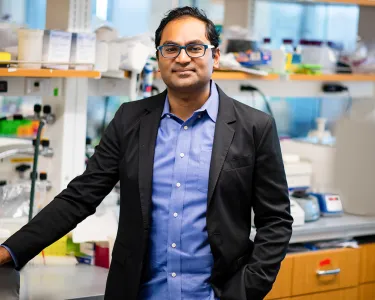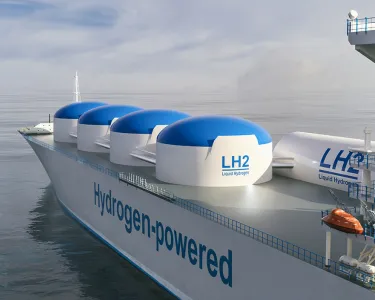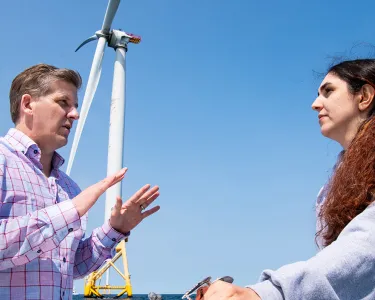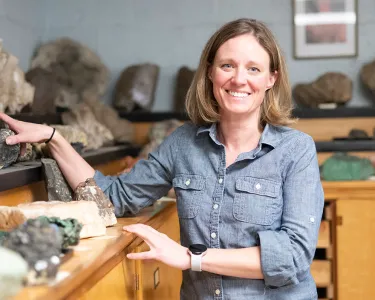Energy and the Environment
With major research programs in energy and environmental policy, civil and environmental engineering, urban planning, environmental studies, agriculture, food, water, and health, Tufts is pushing the boundaries on understanding—and tackling—the changes on our planet.
Creating a Greener, Cleaner, More Sustainable Planet
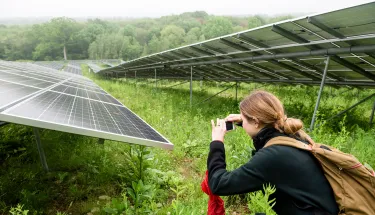
Tufts stands at the forefront of global efforts to lay the groundwork for large-scale changes needed to prevent environmental disasters, bolster the world’s transition to resilient energy sources, mitigate the potentially devastating effects of existing environment-related threats, and create healthy, sustainable ecosystems for all communities.
Leveraging its strong relationships with government, industry, national laboratories, and other research centers, Tufts regularly convenes experts on these issues. As one example: Bluetech Innovation Day, a Tufts-led event focused on the rapidly growing range of technologies that intersect with the oceans, highlights the university’s dedication to ocean sustainability.
A key to creating healthier oceans is building a greener, cleaner shipping industry—a multidisciplinary effort underway at Tufts. That effort integrates the university’s expertise in offshore wind with the resources of the School of Engineering’s Offshore Wind Energy Engineering program—the first offshore wind graduate program dedicated to infrastructure, supply chain, and transmission in the offshore wind industry.
In addition, The Fletcher School’s Center for International Environment and Resource Policy (CIERP) analyzes how economic and social activities impact the environment and also designs strategies for meeting human needs without straining the planet’s resources.
Tufts is making a difference on other sustainability fronts as well:
Tufts researchers and others have discovered a single-atom alloy catalyst that can produce propylene in a highly efficient manner, with a much lower carbon footprint than methods traditionally used.
Several studies are highlighting both problems that need addressing and potential solutions, including ones that:
- Help target and prioritize equitable investments for climate change-resilient levees
- Seek to understand—and learn from—the secrets of resilience among birds, tadpoles, and fruit flies
- Demonstrate the significantly increased likelihood of extreme weather in wheat-producing areas of the globe
- Use yeast to manufacture biofuels and other products with a very low carbon footprint.
Tufts is one of only a small number of universities in the nation offering a bachelor's of science degree in climate science. And Tufts offers a graduate certificate in impact and sustainable investing, a one-year, online program based in the Urban and Environmental Policy and Planning Department.
A significant contribution to Tufts’ research in environmental and energy sustainability: the focus of that research on food and water—the two fundamental systems that have the largest impact on people and societies. The impending loss of water in locations around the world coupled with inadequate food systems and global food shortages will be among the most destabilizing challenges in human history.
Yet through expertise in the Friedman School of Nutrition Science and Policy and The Fletcher School as well as the schools of Arts and Sciences and of Engineering, research is under way to surface tangible solutions that mitigate issues related to food systems and water supplies, among other concerns.
Tufts intends for that research to inform a new model for education that engages students as global citizens who bring hands-on solutions to local and global communities.

